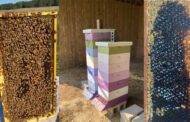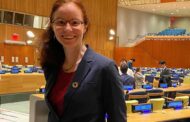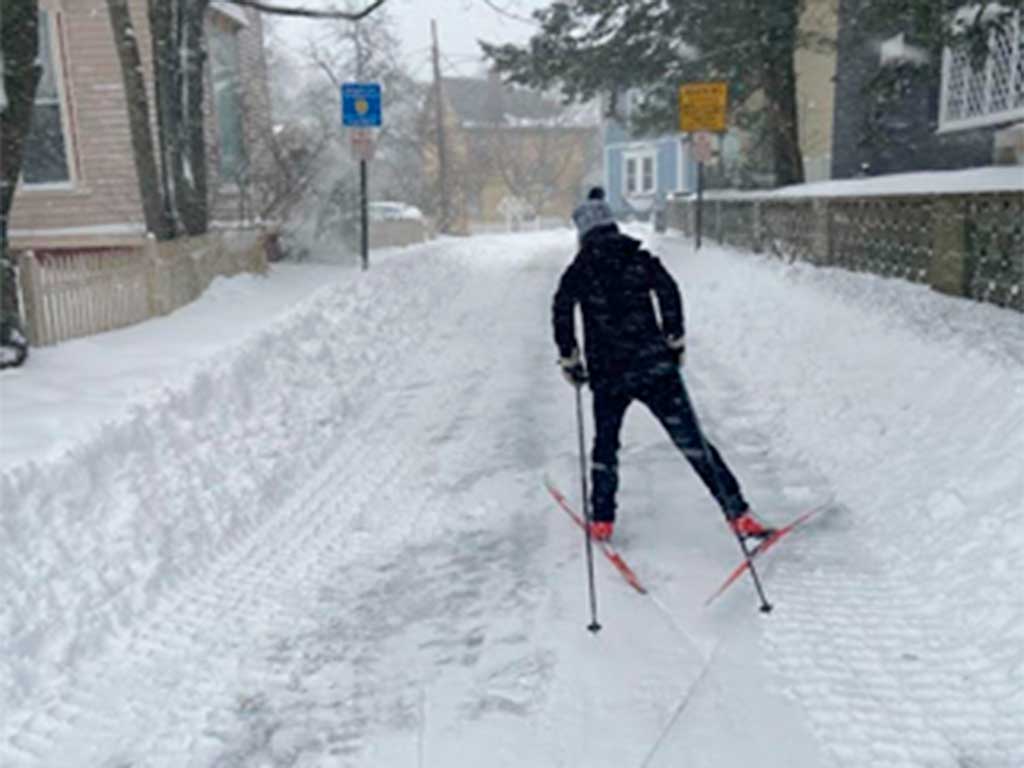
Bright Idea: First Vote, Then Do This
By Caitlin Marshall

Hopefully, most readers of The West End News know by now that one very, very important action to take for a better climate future is to vote. Voting is the cornerstone of democracy. It is the fundamental way we show up and say: here are the issues that matter.
The environmental coalition group, Maine Climate Action Now, has put together a great set of resources on where and when to vote along with questions to ask candidates about climate. You can find them at https://www.maineclimateaction.org/voteclimatejustice2024.
But then what? Democracy does not stop at the ballot box. Here are a few ideas on how to expand your reach – and build community while you’re at it.
Tell all your friends to vote and nail down a specific plan.
During the get-out-the-vote campaign, those pesky canvassers and phone bankers (hello!) will ask you to think through your plan: Vote absentee? On election day, morning, or evening? How will you get there? Making a clear plan of how you will vote makes a meaningful impact on voter turnout, so have those conversations with your friends and family. Share a personal reason about why you are voting for climate advocates.
Support efforts to protect voting rights.
Research by Yale shows that the American demographics most concerned about climate change are young, people of color, and lower income. (Perhaps pause for a moment to see how that matches up to who you picture when you hear the word “environmentalist.”) These groups are also the most likely to be impacted by voter suppression measures. The ACLU and others have a wealth of resources to help ensure everyone gets their voice heard.
Submit public comments and testimony.
Policies and projects are made year-round and don’t always get much input from the public. When we do weigh in, it can make a difference. For example, the controversial plan to build a new Gorham Connector highway is now back in a public review phase after loud opposition to the project. A decade ago, the Clear Skies Ordinance to block a tar sands oil pipeline passed the South Portland City Council after overwhelming public testimony. Look for public input forums at local, state, and federal levels.
Talk about climate… and not just the bad stuff.
It’s increasingly all over the news and nearly always frightening. Still, many of us feel uncomfortable or uncertain about discussing our climate concerns with the people we know. But the more we talk, the more we normalize that the climate crisis is the reality of our times. And we can choose to talk about what inspires us! Solar and wind are growing faster than ever, Maine has surpassed goals on heat pump installations, and conservation of the Sebago Lake watershed is increasing.
Let’s vote, and then let’s keep the conversation going.
Bright Ideas is brought to you by PCAT, which meets the fourth Tuesday of the Month, 6 to 7:30 p.m. All are welcome. FMI: email Portlandclimate@gmail.com or visit facebook.com/PortlandClimateActionTeam.





